In pictures: The biggest international news stories of 2022
This year saw months of warfare in Ukraine, the assassination of former Japan prime minister Shinzo Abe and the death of Britain’s longest-reigning monarch, Queen Elizabeth II.
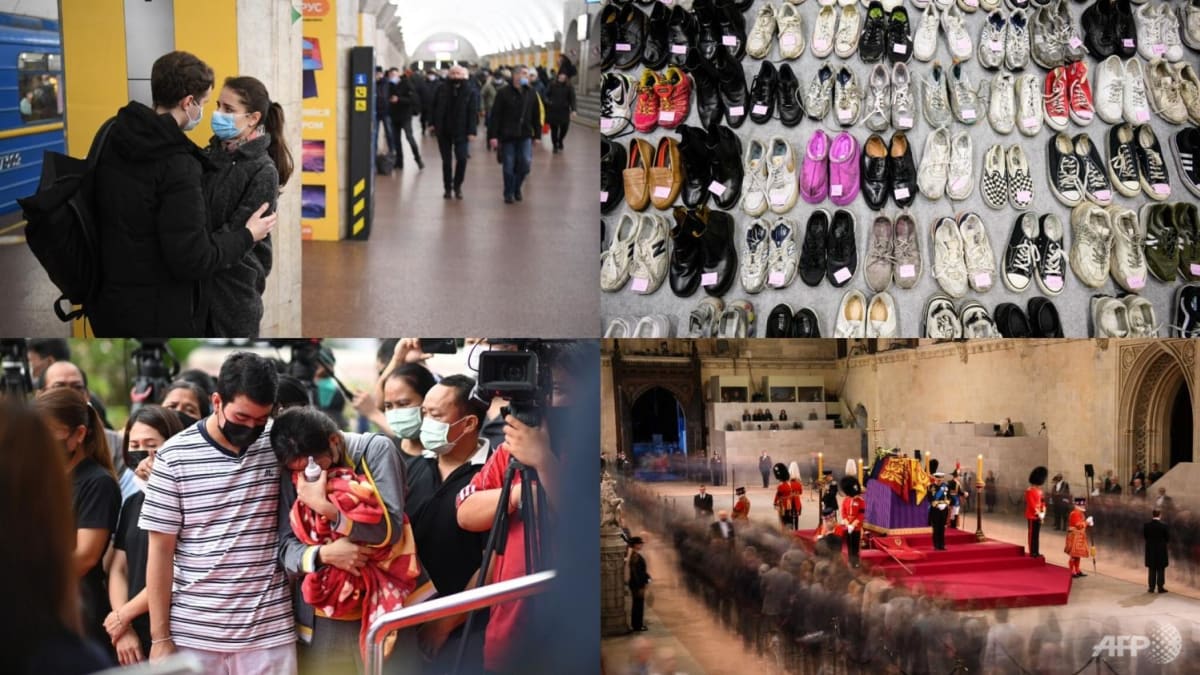
From the Russian invasion of Ukraine to a deadly shooting at a nursery in Thailand, many significant events marked 2022. (Photos: AFP)
From the war in Ukraine to deadly human crushes in Indonesia and South Korea, here's a look back at the stories that shaped 2022.
January
Hunga Tonga-Hunga Ha'apai erupts
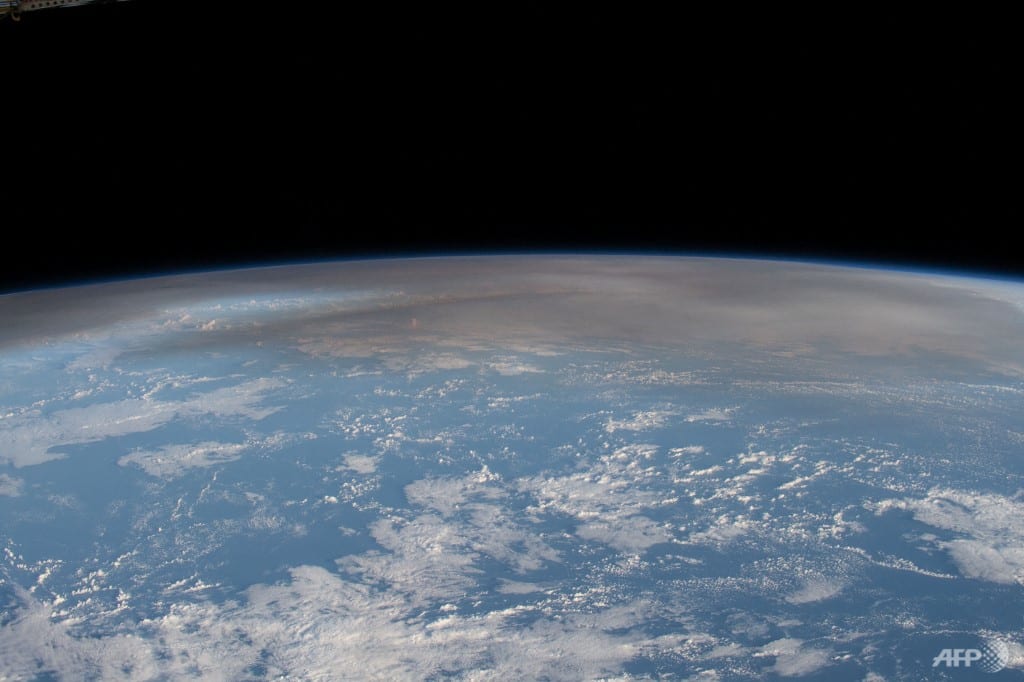
The eruption of the undersea Hunga Tonga-Hunga Ha'apai volcano on Jan 15 triggered tsunami waves that destroyed villages and resorts in Tonga and cut communications for the country of about 105,000 people.
The force of the eruption was hundreds of times stronger than that of the atomic bomb the United States dropped on Hiroshima during World War II, according to the National Aeronautics and Space Administration (NASA).
February
Beijing Winter Olympics begin
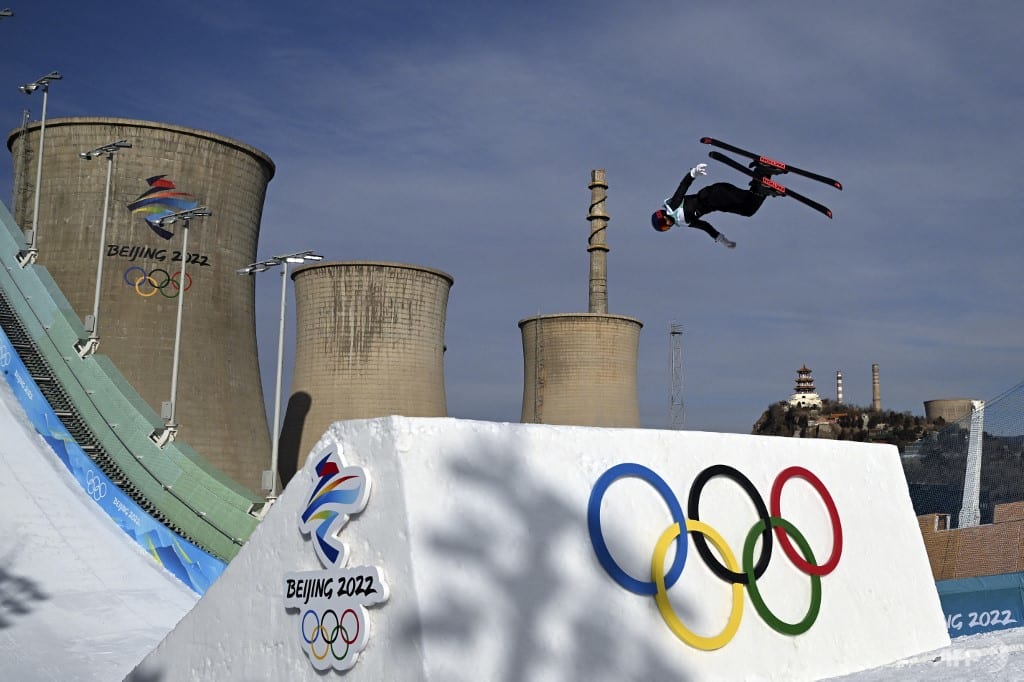
Beijing became the first city to host both a Summer Olympics and a Winter Olympics when the 2022 Winter Games opened in the Chinese capital on Feb 4.
One of the biggest stars of the Games, which ran until Feb 20, was China's Eileen Gu, who won two golds and a silver.
The US-born freestyle skier helped the host nation finish third in the medal table – their best performance at a Winter Olympics.
Russia invades Ukraine
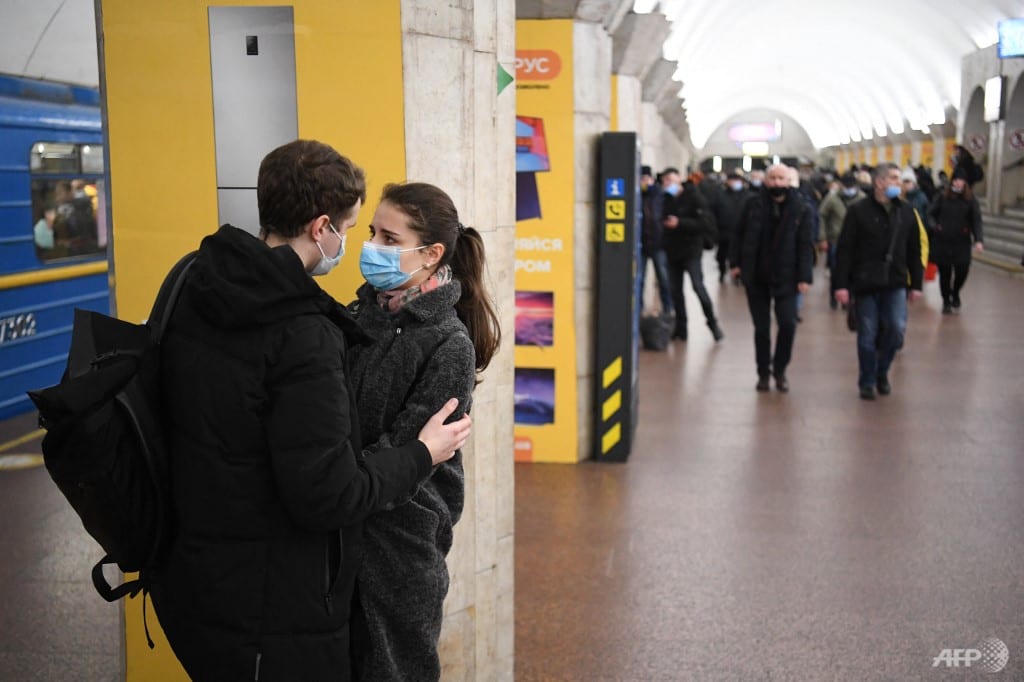
War returned to Europe on Feb 24 with Russia launching a full-scale invasion of Ukraine after having troops amassed at the countries' border for weeks.
Russian President Vladimir Putin said in an address to the nation that he had ordered a "special military operation" to protect people, including Russian citizens, subjected to "genocide" in Ukraine.
Ukrainian President Volodymyr Zelenskyy, who is Jewish, compared Russia's invasion of his country to military campaigns carried out by Nazi Germany during World War II.
March
China Eastern Airlines flight MU5735 crashes
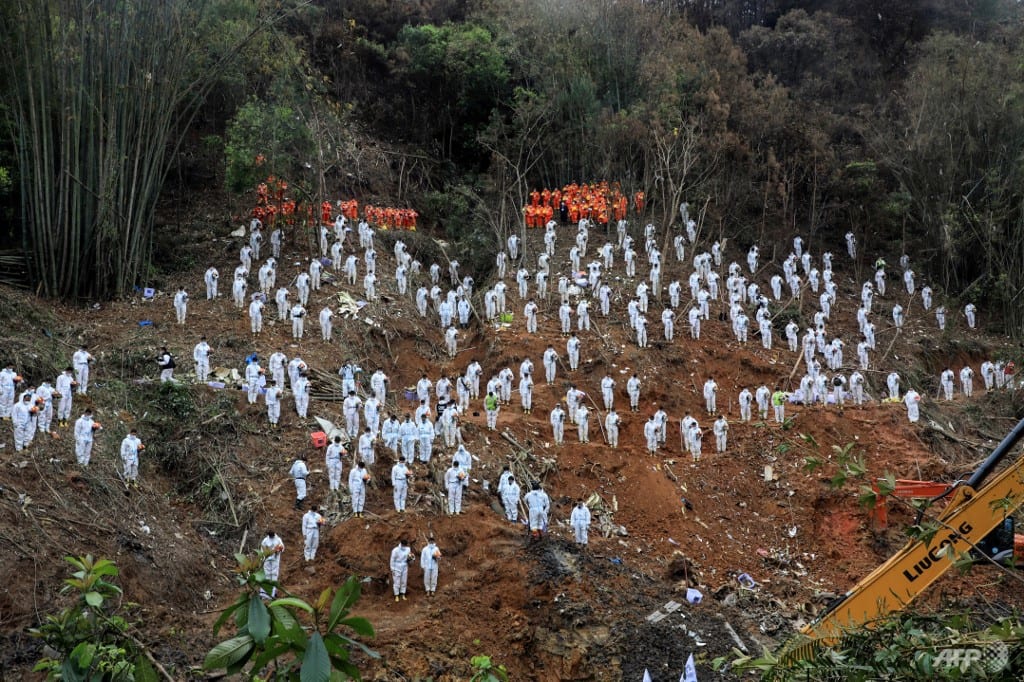
In mainland China's deadliest aviation disaster for 28 years, a China Eastern Airlines Boeing 737-800 crashed in the mountains of southern Guangxi on Mar 21, killing all 123 passengers and nine crew on board.
The plane plunged suddenly from cruising altitude, and its pilots did not respond to repeated calls from air traffic controllers and nearby planes during its rapid descent, authorities said.
North Korea claims to have tested ICBM
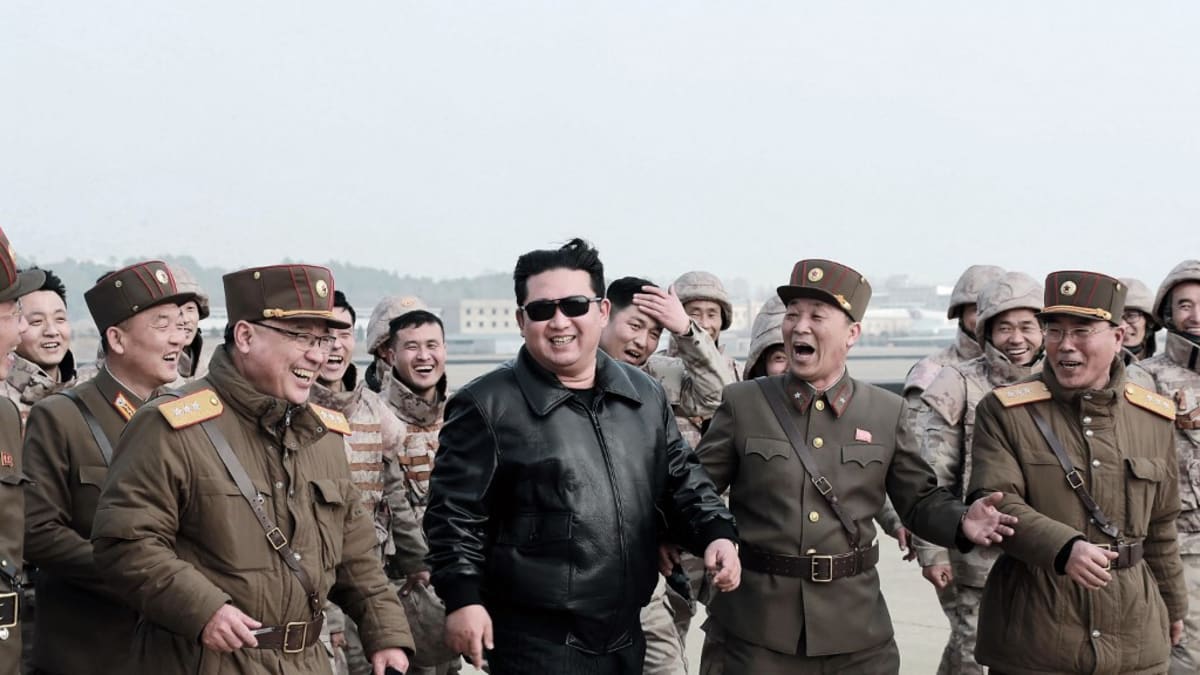
North Korea claimed to have launched a Hwasong-17 – its most powerful missile to date – on Mar 24, releasing a slick promotional video and photos of the event.
Seoul later cast doubt on that claim, but analysts said that North Korea conducted a successful launch of the missile in November.
Military tensions on the Korean peninsula rose sharply in 2022 as Pyongyang carried out an unprecedented blitz of weapons tests.
April
Tropical storm Megi hits the Philippines
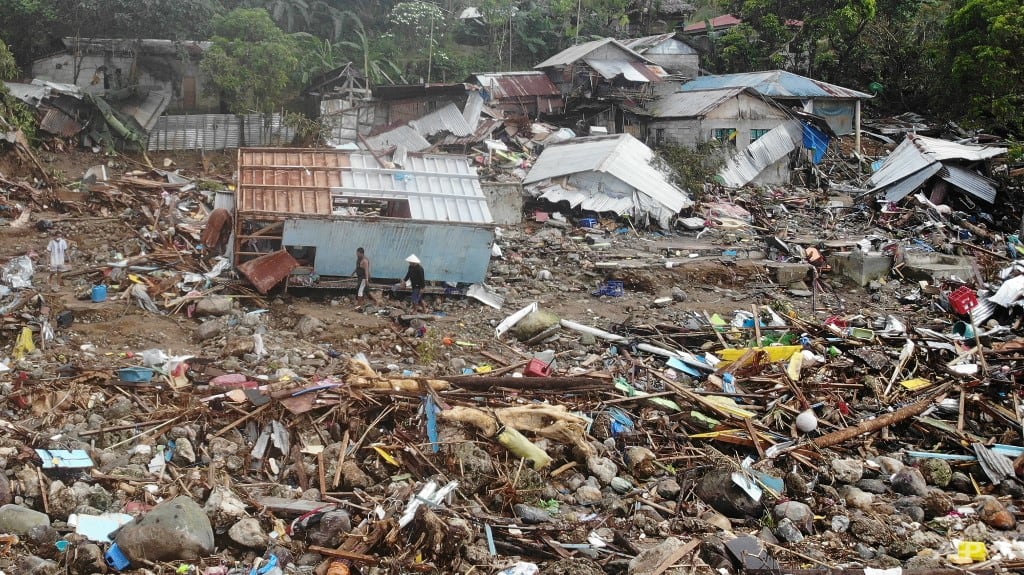
Tropical Storm Megi ripped through central areas of the Philippines after making landfall on Apr 10, triggering landslides and killing 214 people.
A number of the casualties were in Baybay, a mountainous area prone to landslides in Leyte province, with aerial photographs and video from the local government showing coconut plantations and houses buried in dirt and mud.
Shenzhou-13 astronauts return to Earth
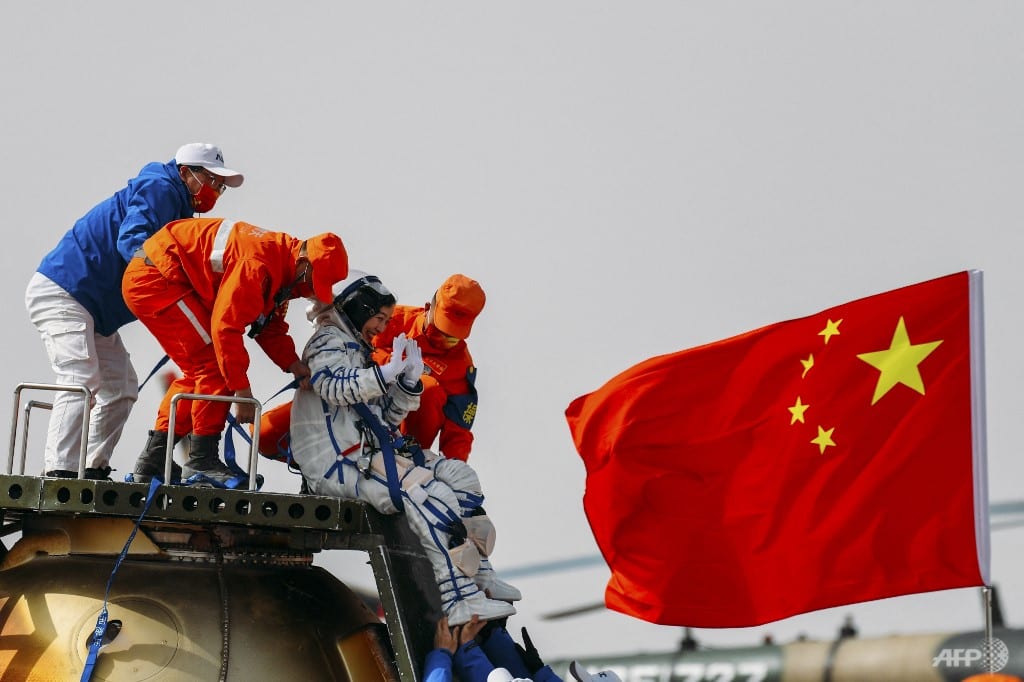
Three Chinese astronauts returned to Earth on Apr 16 after 183 days in space, state television reported, completing the country's longest crewed space mission to date.
Shenzhou-13 astronauts Zhai Zhigang, Ye Guangfu and Wang Yaping landed nine hours after they left a key module of China's first space station.
During the mission, Wang became the first Chinese woman to conduct a spacewalk, authorities said.
May
Ferdinand Marcos Jr claims victory in Philippine presidential election
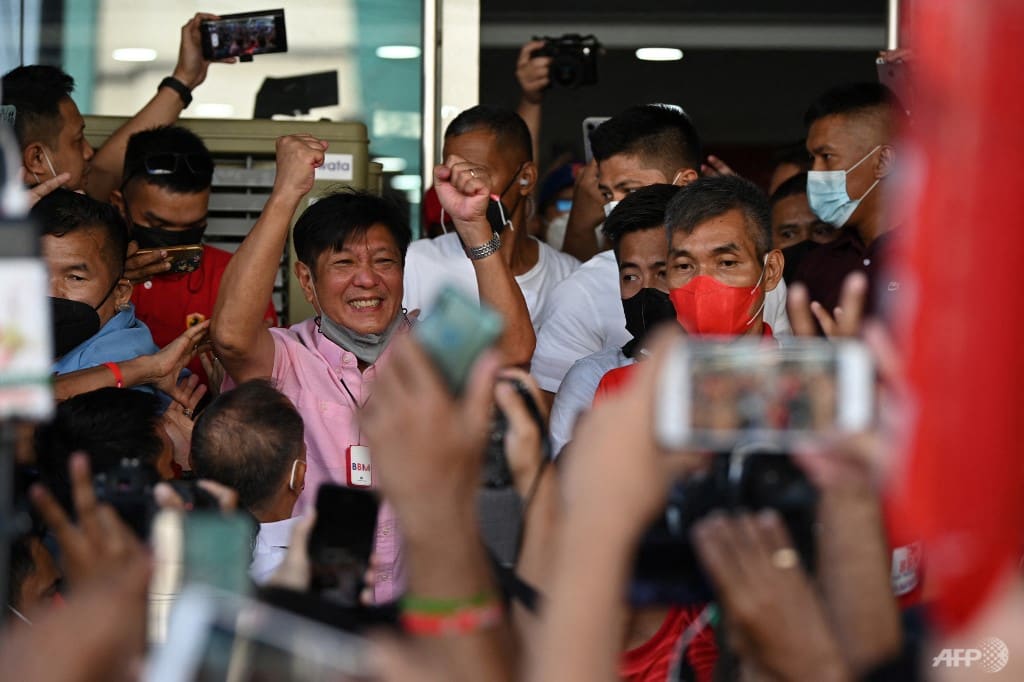
Popularly known as "Bongbong", Ferdinand Marcos Jr claimed victory in the Phlippine presidential election on May 11, two days after Filipinos went to the polls.
It would turn out to be a landslide victory, with Marcos Jr securing the biggest winning margin since his father was ousted by a popular revolt in 1986.
Marcos Jr was sworn in as Rodrigo Duterte's successor on Jun 30.
June
Earthquake kills more than 1,000 in Afghanistan
.jpg?itok=4mEUO2Mf)
More than 1,000 people were killed when an earthquake struck a remote area of Afghanistan near its border with Pakistan early on Jun 22. The quake also injured about 2,000 people and damaged or destroyed 10,000 homes.
Poor communications and a lack of proper roads hampered relief efforts in a country already grappling with a humanitarian crisis that has deteriorated since the Taliban returned to power in August 2021.
July
Shinzo Abe is assassinated
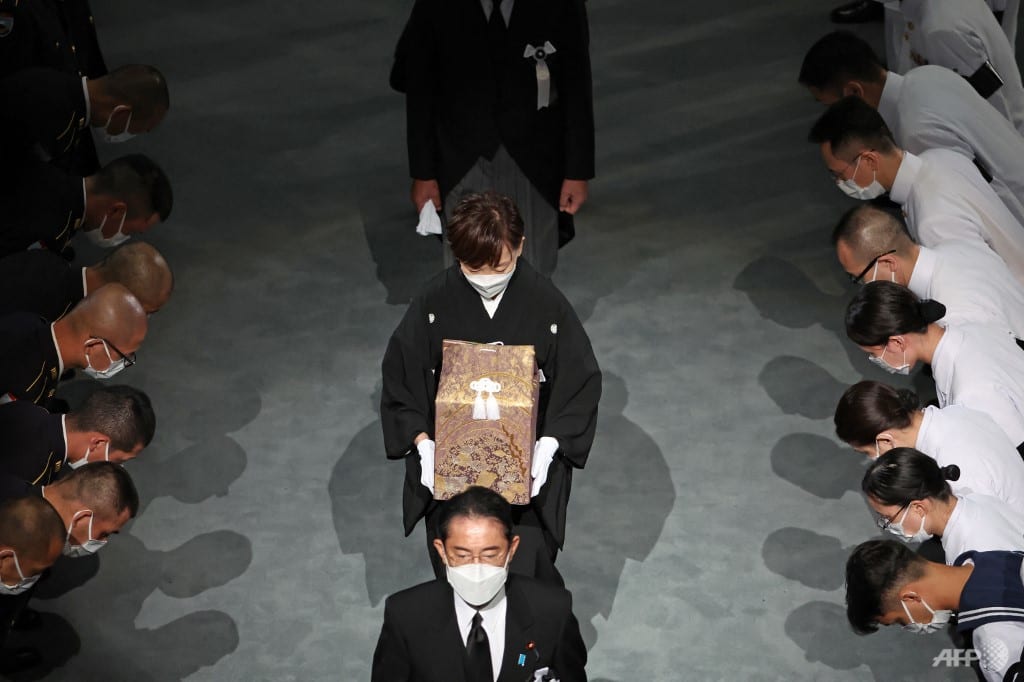
Former Japanese prime minister Shinzo Abe died of his injuries on Jul 8 after he was shot while campaigning for a parliamentary election.
Abe's suspected assassin, arrested at the scene moments after the killing, bore a grudge against the Unification Church, alleging it bankrupted his mother, and blamed Abe for promoting it.
A controversial state funeral was held for Abe on Sep 27.
Protesters storm the home and office of Sri Lanka's president
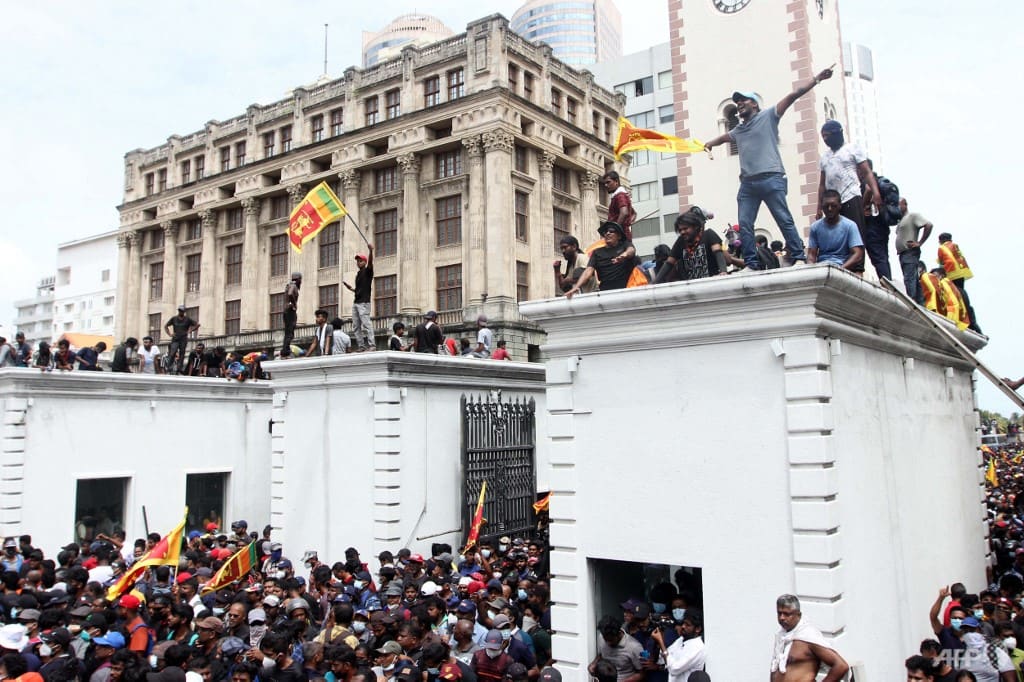
Thousands of protesters stormed the Sri Lankan president's official residence and set the prime minister's private residence on fire in Colombo on Jul 9 as anger intensified over the country's worst economic crisis in seven decades.
President Gotabaya Rajapaksa fled the country days later and eventually submitted his resignation by email while in Singapore.
Europe swelters during a record-breaking heatwave
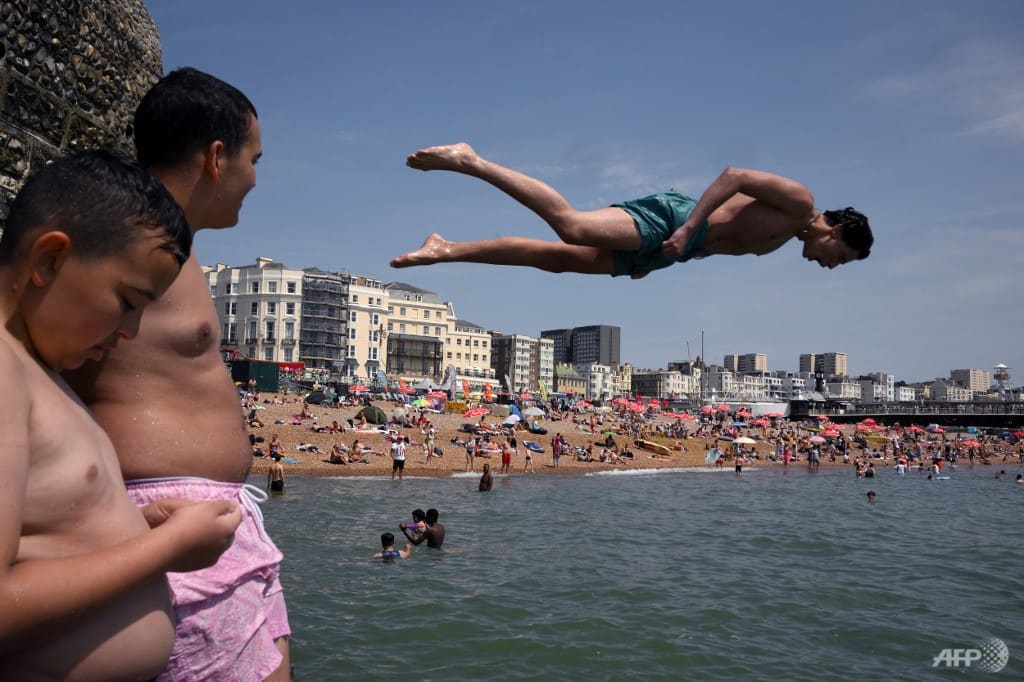
The European Union saw 16 per cent more deaths than usual in July as a record-breaking heatwave hit parts of the continent, official data showed in September.
The extreme heat in southern Europe sparked wildfires in Spain, France and Portugal, and led to thousands of heat-related deaths across Europe, spreading concern over climate change and the increasing frequency and intensity of extreme weather.
The United Kingdom, meanwhile, recorded its highest-ever temperature of 40.3 degrees Celsius on Jul 19, with the heat causing train tracks to buckle and fuelling a spate of fires across London.
WHO declares monkeypox outbreak a global health emergency
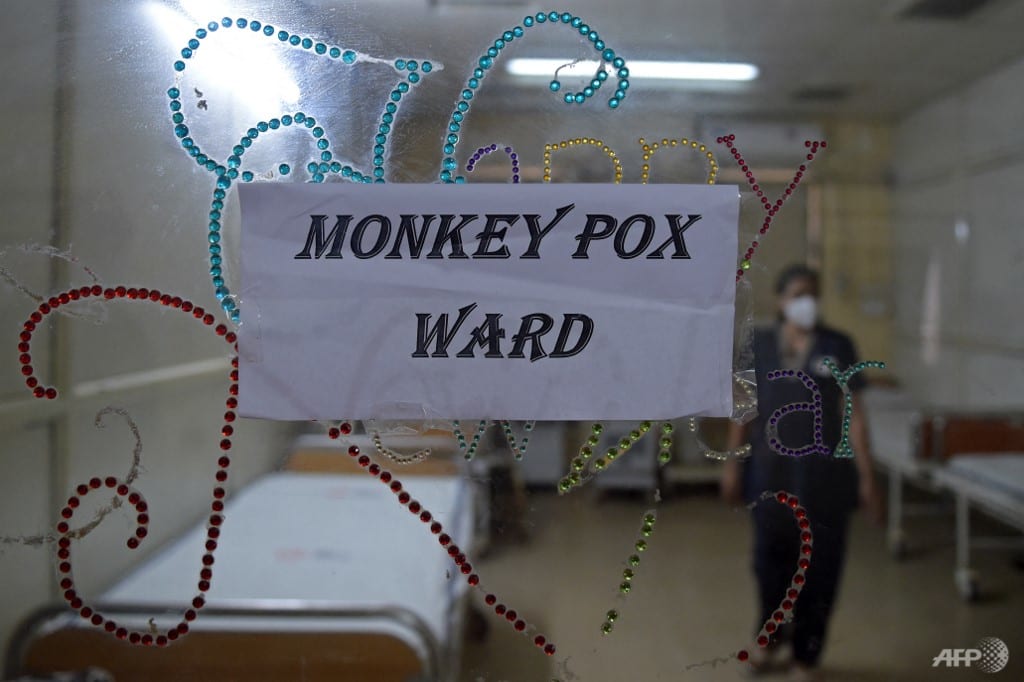
On Jul 23, the World Health Organization (WHO) declared the monkeypox outbreak which began in early May to be a global health emergency – the highest alarm it can sound.
By that point, the outbreak had affected nearly 17,000 people in 74 countries.
August
Nancy Pelosi visits Taiwan
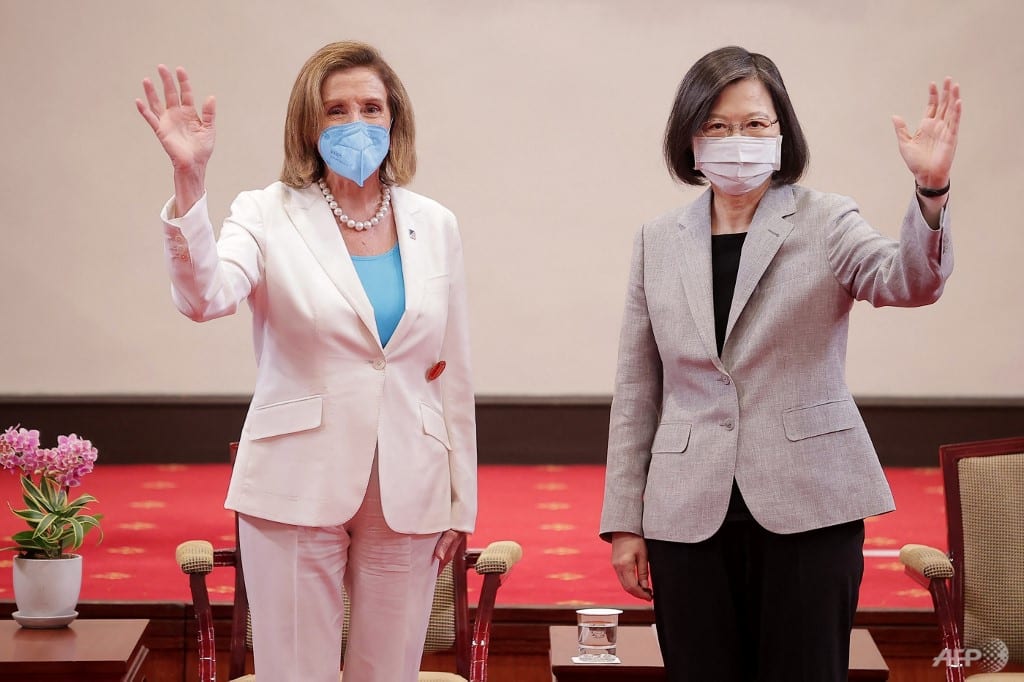
US House of Representatives Speaker Nancy Pelosi arrived in Taiwan late on Aug 2 on a trip she said showed America's unwavering commitment to the Chinese-claimed self-ruled island. Pelosi visited Taiwan's parliament and met President Tsai Ing-wen the next day.
China condemned the highest-level US visit to Taiwan in 25 years as a threat to peace and stability in the Taiwan Strait, and retaliated with a series of military exercises around the island.
Floods inundate Pakistan
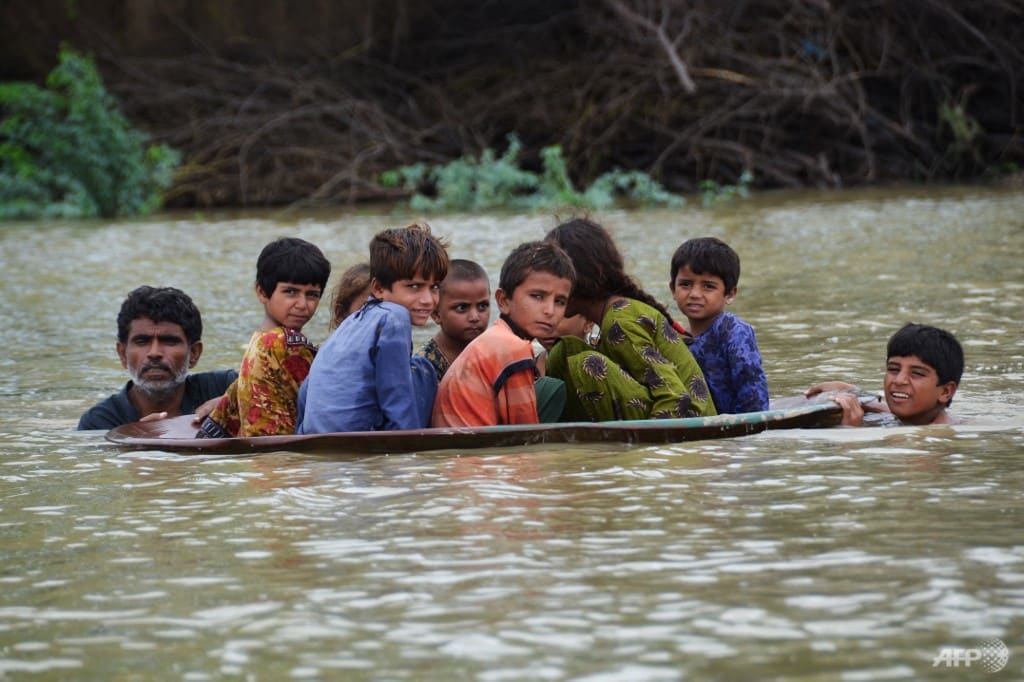
Record monsoon rains in south and south-west Pakistan and glacial melt in northern regions triggered flooding that impacted nearly 33 million people in the country.
By October, more than 1,700 people had been killed as floodwaters swept away homes, crops, bridges, roads and livestock.
The floods followed record-breaking summer temperatures, and the Pakistani government and the United Nations have both blamed climate change for the extreme weather and the devastation it has brought.
September
Queen Elizabeth II dies
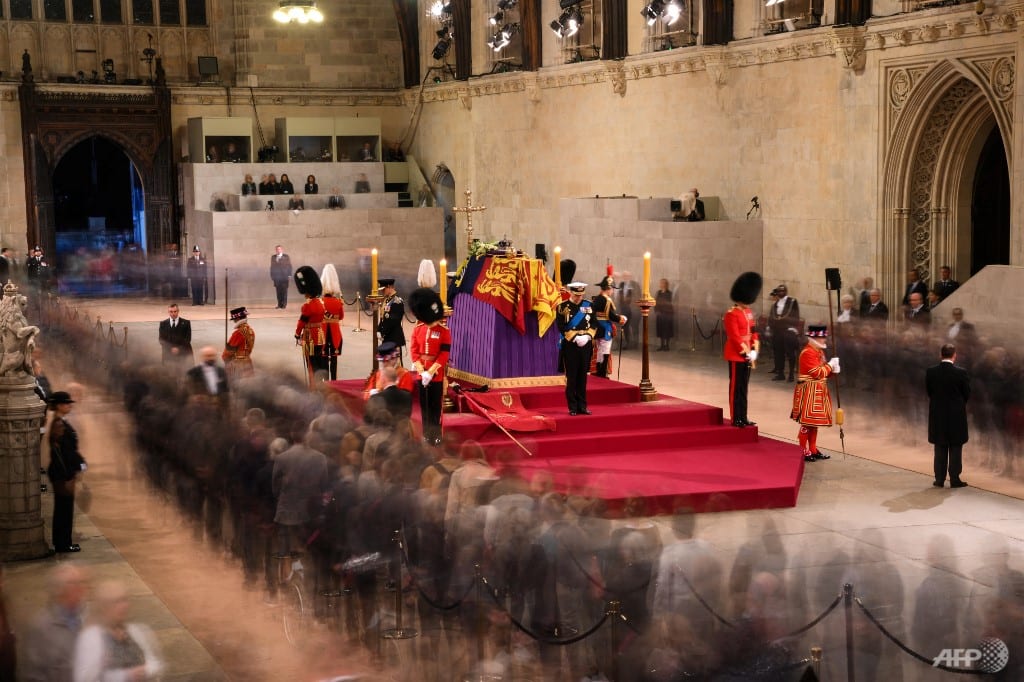
Queen Elizabeth II, Britain's longest-reigning monarch, died at the age of 96 at Balmoral Castle in the Scottish highlands on Sep 8. She was succeeded by her son Charles, who chose to reign as King Charles III.
After lying in state in Westminster Hall from Sep 14 to Sep 19, the queen was farewelled with a state funeral at Westminster Abbey before she was laid to rest alongside her husband Prince Philip in St George's Chapel at Windsor Castle.
Protests begin in Iran and around the world after the death of Mahsa Amini
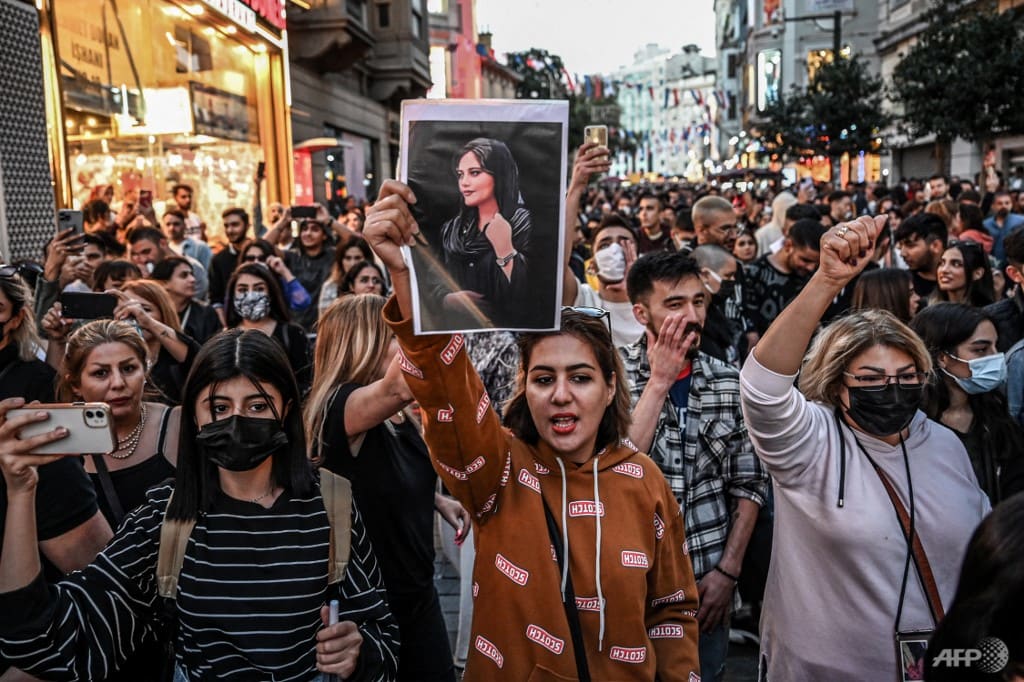
The death of Mahsa Amini in Tehran on Sep 16 after her arrest for allegedly violating Iran's strict dress code for women sparked protests in the country and around the world.
Women, university students and schoolgirls led the demonstrations, with their largely peaceful protest actions including removing and burning their headscarves in the streets, chanting anti-government slogans and confronting the security forces.
Iran's security forces responded with a crackdown that had killed more than 400 people by early December.
October
Stampede at football stadium in Indonesia kills 135
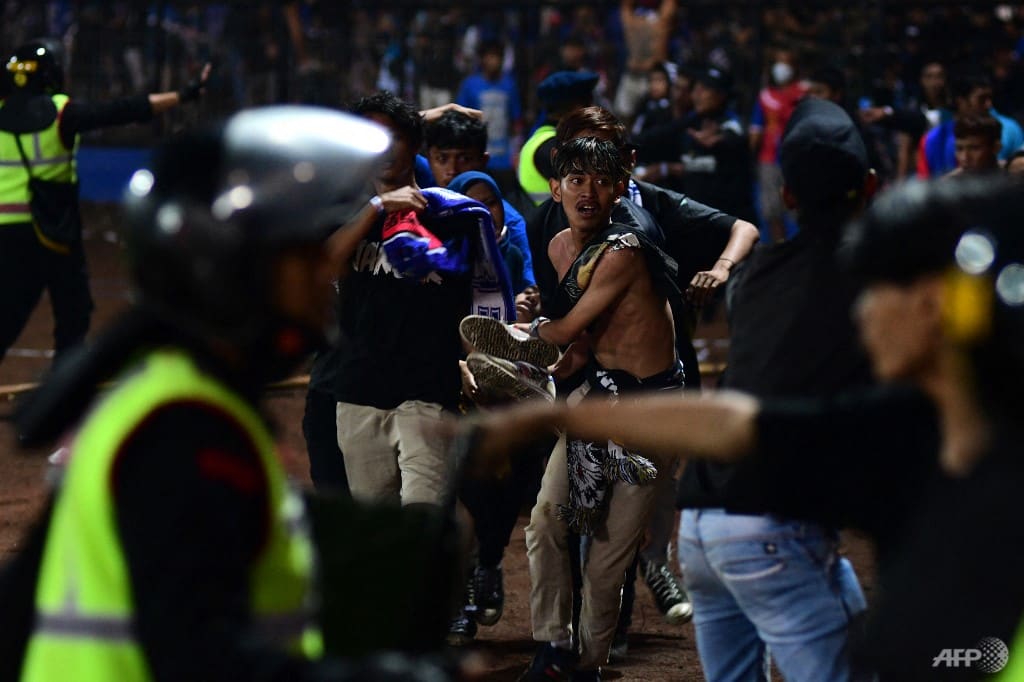
In one of the worst stadium disasters ever, a stampede at the Kanjuruhan stadium in Malang, East Java, on Oct 1 killed 135 people.
After supporters invaded the pitch at the end of a league match between local team Arema FC and rivals Persebaya Surabaya, police fired tear gas into packed stands, sparking the stampede.
Three police officers are among six people who have been charged over the tragedy.
Shooting at nursery in Thailand kills 37
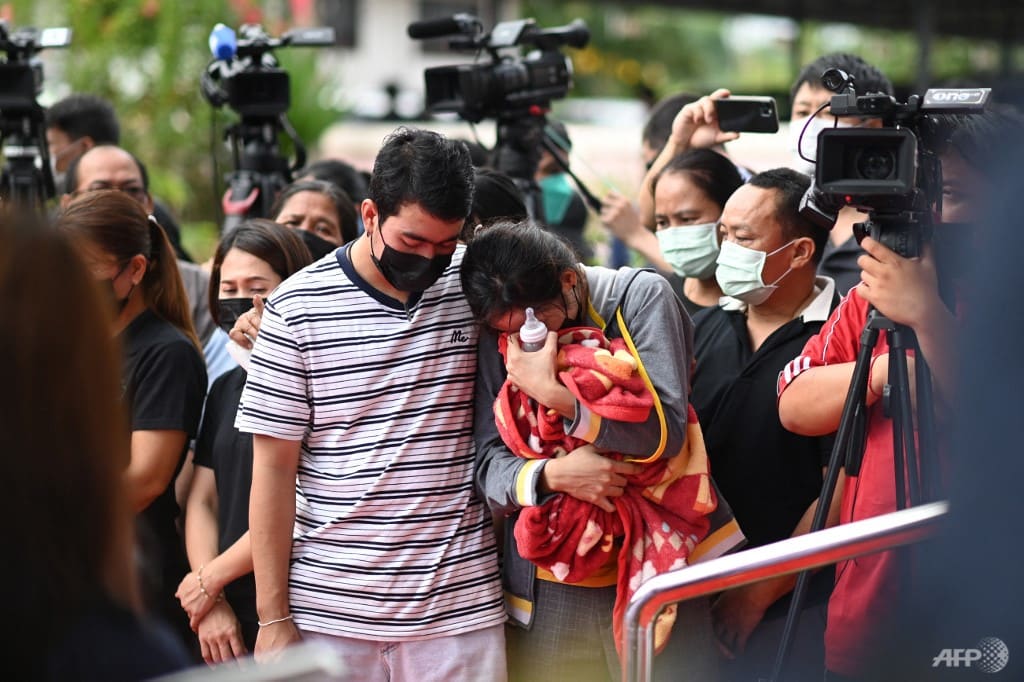
A former police officer went on a gun-and-knife rampage at a nursery in north-eastern Thailand's Nong Bua Lam Phu province on Oct 6, killing 37 people including 24 children.
The violence – Thailand's worst ever massacre and the deadliest massacre of children anywhere in recent years – stunned the country and led to calls for tighter gun control.
Xi Jinping secures third term as China's leader
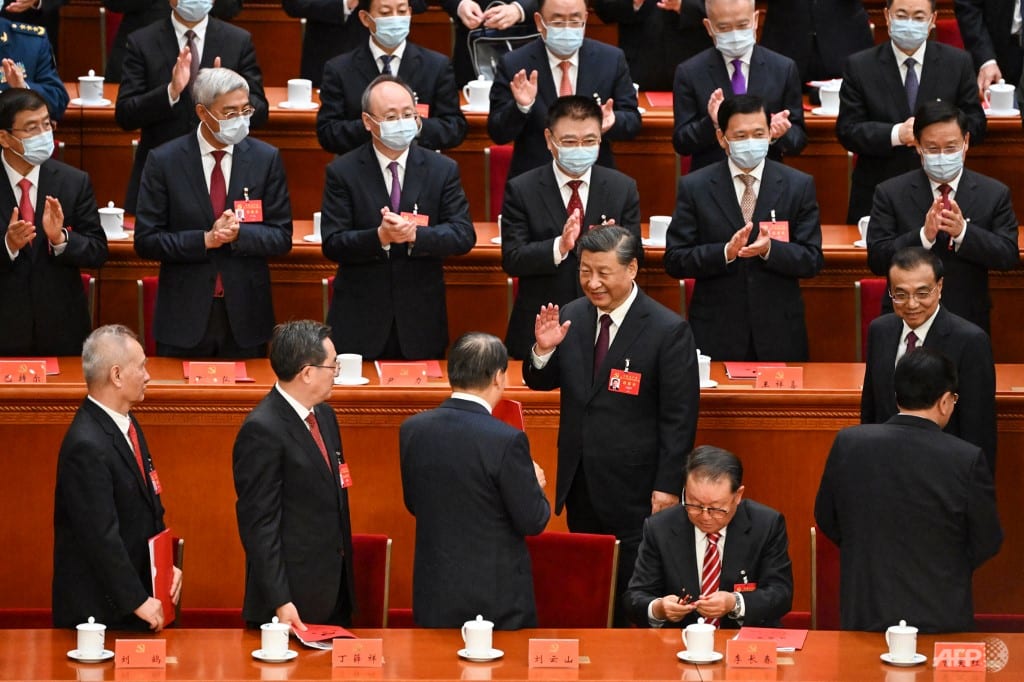
Chinese President Xi Jinping secured a historic third term as the country's leader on Oct 23, effectively cementing his position as its most powerful leader since Mao Zedong.
The anointment of Xi came after a week-long congress which saw a sweeping reshuffle of the Communist Party's Central Committee.
Rishi Sunak becomes UK PM
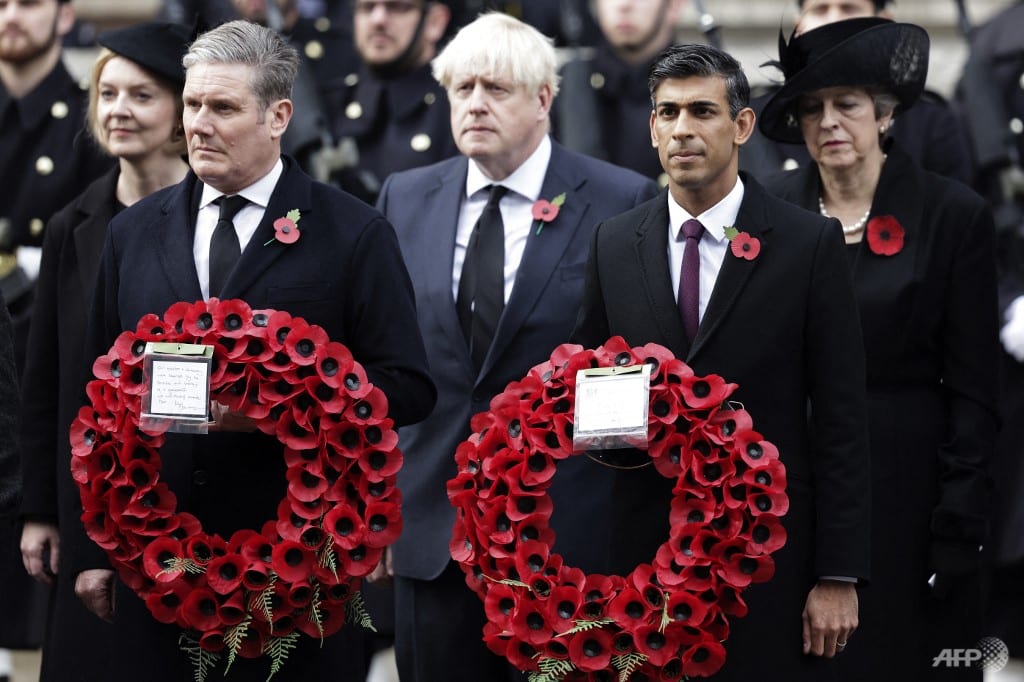
Rishi Sunak became Britain's third prime minister in two months on Oct 25 and pledged to lead the country out of a profound economic crisis and rebuild trust in politics.
His appointment by King Charles III made him Britain's first Asian prime minister and the youngest person to hold the office in more than two centuries.
Crowd crush in Seoul's Itaewon district kills 158
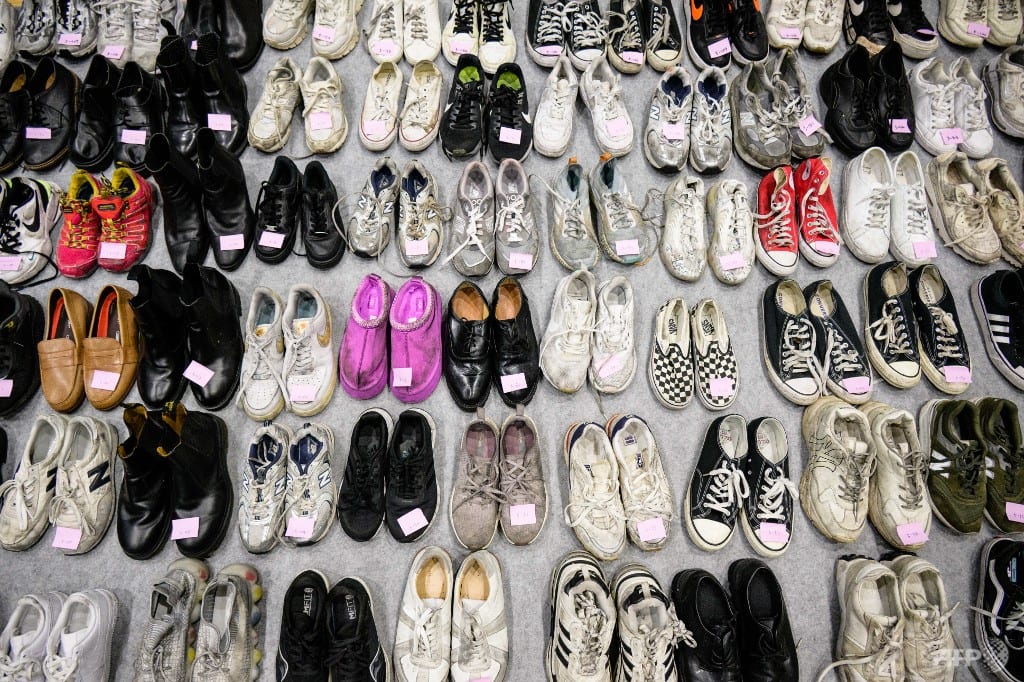
On Oct 29, tens of thousands of revellers, many of them young, crowded into the narrow streets and alleyways of Seoul's Itaewon district for the first virtually unrestricted Halloween festivities in three years.
An uncontrolled surge of people into one narrow alleyway turned into a deadly crush that killed 158 and left close to 200 injured. Among them were foreigners from 14 countries, including China, Iran, Uzbekistan and Norway.
November
Cryptocurrency exchange FTX collapses
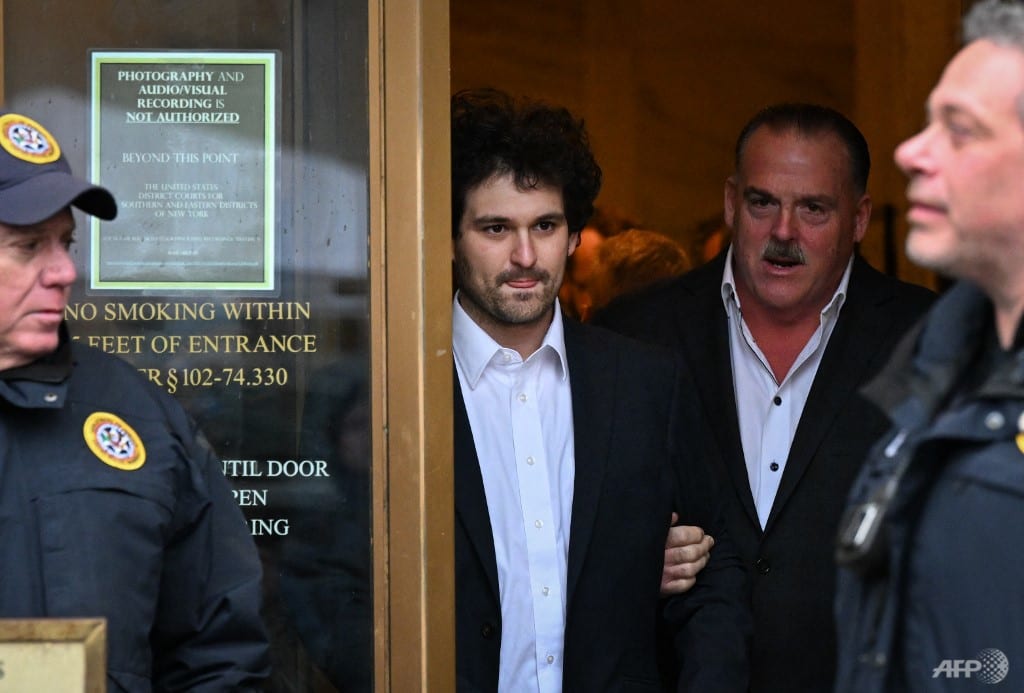
The crypto exchange FTX filed for US bankruptcy protection on Nov 11, leaving possibly more than a million customers and investors facing losses in the billions of dollars.
The fall of the industry darling fanned fears about the future of the crypto industry as crypto prices plummeted.
FTX founder Sam Bankman-Fried was arrested in the Bahamas on Dec 12 and charged by the US Department of Justice a day later with defrauding investors in what regulators called a "brazen, multi-year scheme".
Anwar Ibrahim becomes Malaysian PM
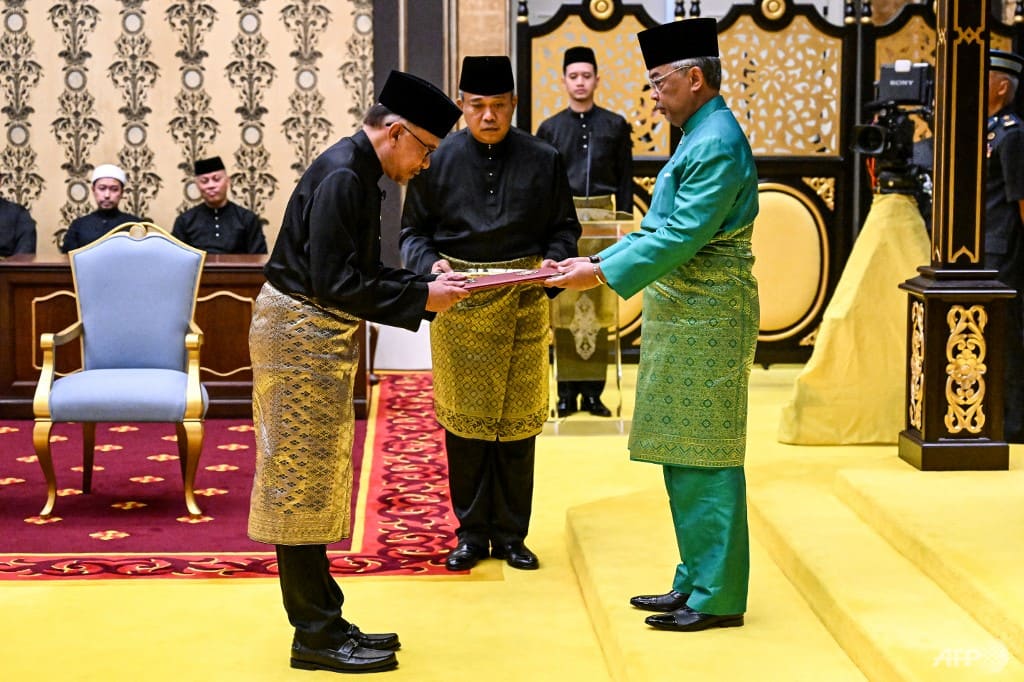
Pakatan Harapan (PH) chairman Anwar Ibrahim was sworn in as Malaysia’s 10th prime minister on Nov 24, five days after his coalition won the most seats in the country's 15th general election.
In his first address as prime minister, Anwar promised to tackle corruption and focus on the economy. He also vowed to continue to uphold Islam as Malaysia's official religion and the special rights of Malays.
He said that his unity government would comprise PH, the former ruling coalition Barisan Nasional and Gabungan Parti Sarawak.
December
Landslide near Genting Highlands kills 31
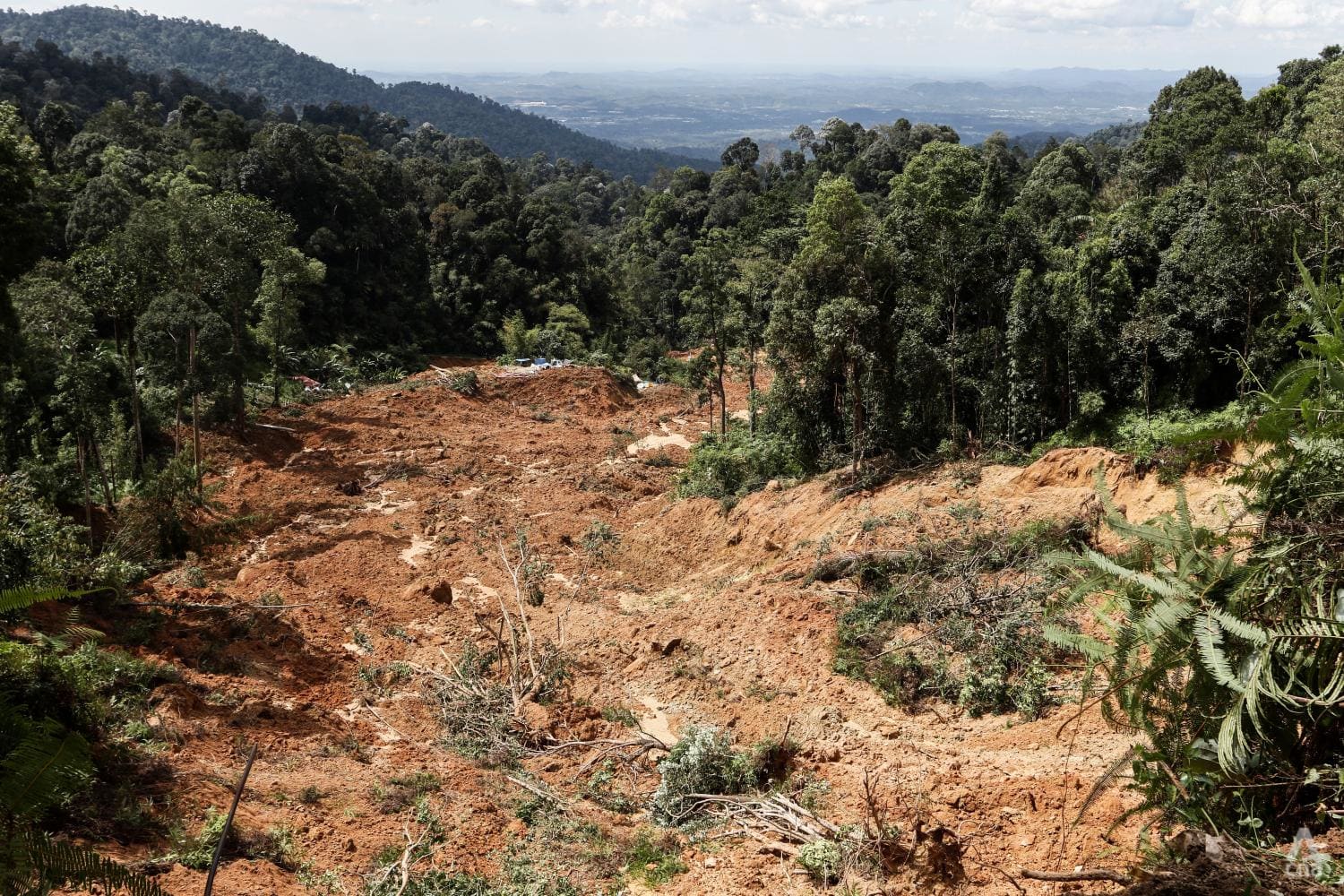
Shortly after 2am on Dec 16, a landslide struck in the town of Batang Kali.
The landslide in the popular hilly area near Genting Highlands tore through an unlicensed campsite while people slept in their tents, killing 31.
Based on an initial investigation, the authorities said that an embankment of about 450,000 cubic metres of earth had collapsed, causing the earth to fall from an estimated height of 30m and cover an area of about 0.4ha.
Sinking of Royal Thai Navy warship leaves dozens dead and missing
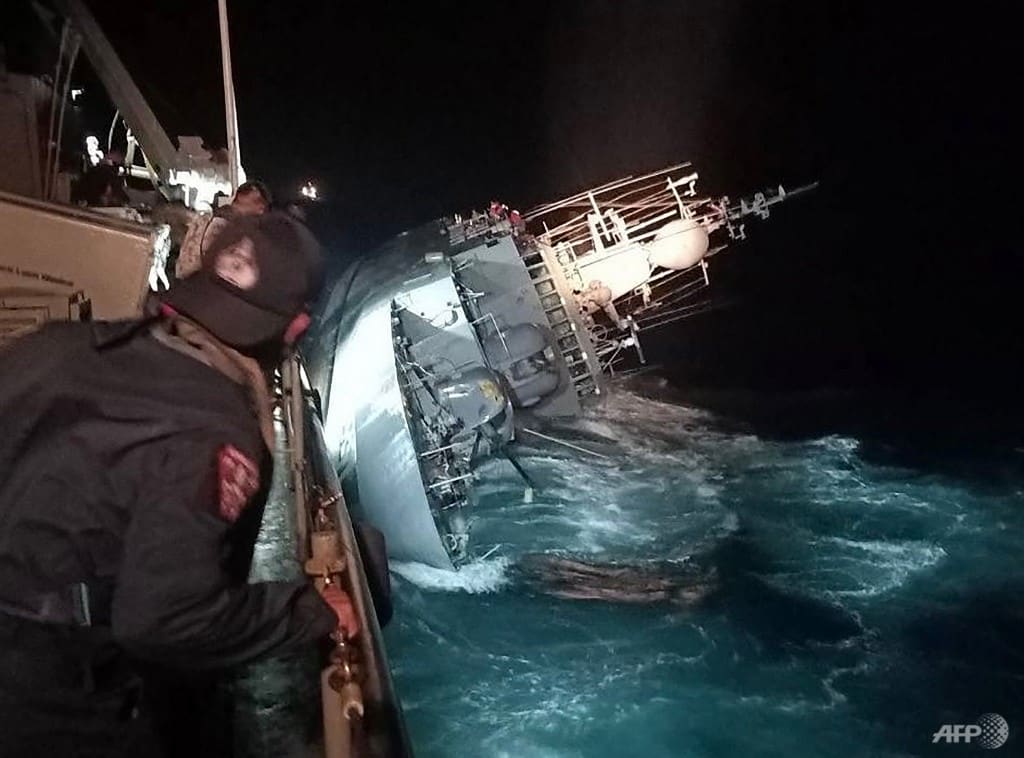
The Royal Thai Navy warship HTMS Sukhothai sank on Dec 18 about 37km off Thailand's south-eastern coast, with a massive rescue operation managing to pull 76 crew alive from the waves.
As of Dec 25, the death toll from the sinking stood at 18, with 11 crew members still missing.
Argentina win the World Cup

Argentina won their third World Cup in an extraordinary final on Dec 18 as they beat France 4-2 on penalties after Lionel Messi scored twice in a 3-3 draw and Kylian Mbappe grabbed a hat-trick to bring the holders back from 2-0 and 3-2 down.
It was an incredible night of drama, high emotion and fluctuating fortunes, with one of the all-time great finals capping a wonderful tournament in Qatar.
War in Ukraine enters 11th month
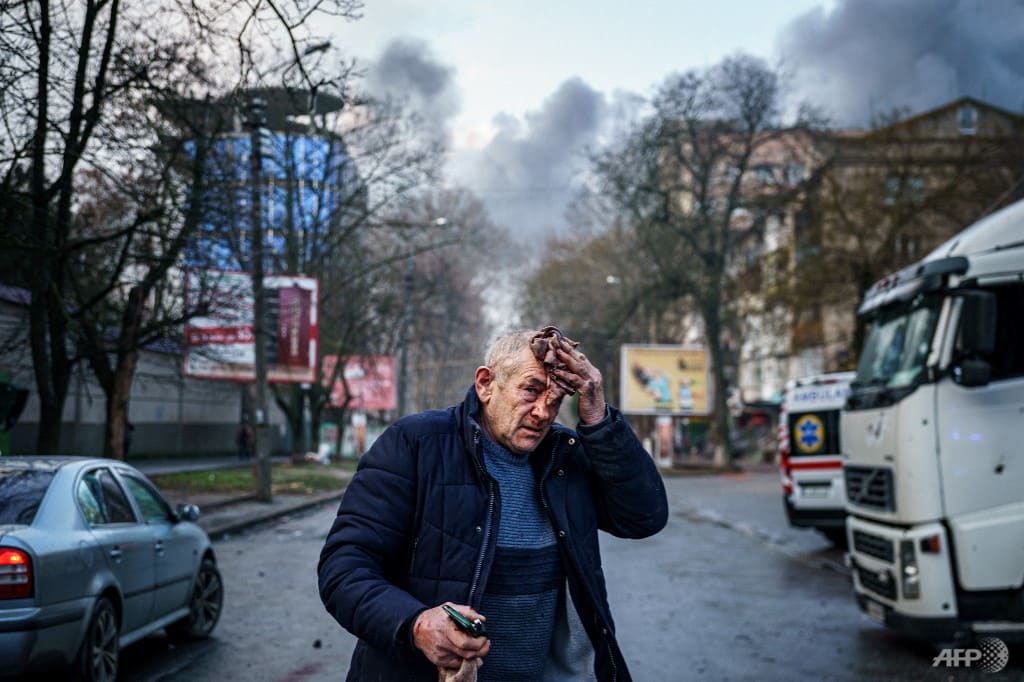
On Dec 24, the day marking 10 months since the start of the war in Ukraine, shells rained around a busy market in Kherson.
At least seven people were killed in the southern port city, which Kyiv's forces recaptured in November.











